Filter by

Pacific Exposures
"Photography has been a key means by which Australians have sought to define their relationships with Japan. From the fascination with all things Japanese in the late nineteenth century, through the era of ‘White Australia’, the bitter enmity of the Pacific War, the path to reconciliation in the post-war period and the culturally complicated bilateralism of today, Australians have used thei…
- Edition
- -
- ISBN/ISSN
- 9781760462543
- Collation
- -
- Series Title
- -
- Call Number
- -
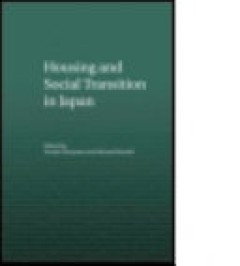
Housing and social transition in Japan
edited by Yosuke Hirayama and Richard Ronald.
- Edition
- -
- ISBN/ISSN
- 0415383617 (hbk)
- Collation
- xi, 216 p. ; 25 cm.
- Series Title
- Housing and society series
- Call Number
- 333.3380952 HOU h

A short history of transport in Japan from ancient times to the present
A Short History of Transport in Japan from Ancient Times to the Present is a unique study: the first by a Western scholar to place the long-term development of Japanese infrastructure alongside an analysis of its evolving political economy. Drawing from New Institutional Economics, Black offers an historically informed critique of contemporary planning using the example of Japan’s historical …
- Edition
- -
- ISBN/ISSN
- 9781800643581
- Collation
- xv, 299p. ; ill.
- Series Title
- -
- Call Number
- 388.0952 BLA a
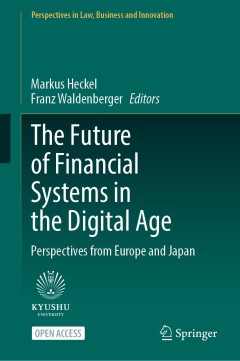
The future of financial systems in the digital age
This book is open access, which means that you have free and unlimited access. The increasing capacity of digital networks and computing power, together with the resulting connectivity and availability of “big data”, are impacting financial systems worldwide with rapidly advancing deep-learning algorithms and distributed ledger technologies. They transform the structure and performance o…
- Edition
- -
- ISBN/ISSN
- 9789811678301
- Collation
- xxiv, 190p ; ill
- Series Title
- -
- Call Number
- 332.1094 HEC t

Re-imagining Japan after Fukushima
"The 2011 Tōhoku earthquake, tsunami and Fukushima nuclear disaster (collectively referred to as ‘3.11’, the date of the earthquake), had a lasting impact on Japan’s identity and global image. In its immediate aftermath, mainstream media presented the country as a disciplined, resilient and composed nation, united in the face of a natural disaster. However, 3.11 also drew worldwide atten…
- Edition
- -
- ISBN/ISSN
- 9781760463540
- Collation
- ix, 163 p.
- Series Title
- -
- Call Number
- 952.04 MIH r
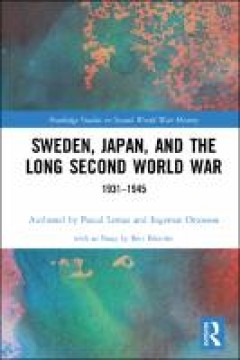
Sweden, Japan, and the long Second World War : 1931-1945
We thank Ekman & Co AB and Gadelius Holding Ltd for their kind and generous support, making this research available online for free. Lottaz and Ottosson explore the intricate relationship between neutral Sweden and Imperial Japan during the latter’s 15 years of warfare in Asia and in the Pacific. While Sweden’s relationship with European Axis powers took place under the premise of existenti…
- Edition
- -
- ISBN/ISSN
- 9781003182061
- Collation
- xiv, 235 p. : ill
- Series Title
- -
- Call Number
- 940.53254850952 LOT s
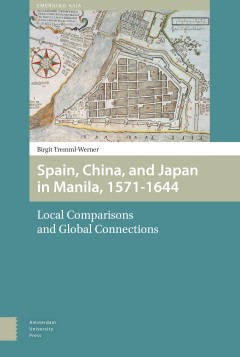
Spain, China and Japan in Manila, 1571-1644 : local comparisons and global co…
This book offers a new perspective on the connected histories of Spain, China, and Japan as they emerged and developed following Manila’s foundation as the capital of the Spanish Philippines in 1571. Examining a wealth of multilingual primary sources, Birgit Tremml-Werner shows that crosscultural encounters not only shaped Manila’s development as a “Eurasian” port city, but also had pro…
- Edition
- -
- ISBN/ISSN
- 9789048526819
- Collation
- viii, 365 p.
- Series Title
- -
- Call Number
- 959.91602 TRE s
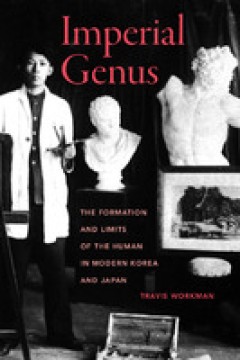
Imperial genus : the formation and limits of the human in modern Korea and Japan
"Imperial Genus begins with the turn to world culture and ideas of the generally human in Japan’s cultural policy in Korea in 1919. How were concepts of the human’s genus‑being operative in the discourses of the Japanese empire? How did they inform the imagination and representation of modernity in colonial Korea? Travis Workman delves into these questions through texts in philosophy, lit…
- Edition
- -
- ISBN/ISSN
- 9780520964198
- Collation
- vii, 307 p. : ill,
- Series Title
- -
- Call Number
- 951.903 WOR i
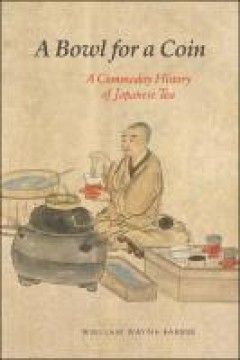
A bowl for a coin : a commodity history of Japanese tea
A Bowl for a Coin is the first book in any language to describe and analyze the history of all Japanese teas. To understand the triumph of the tea plant in Japan, Wayne Farris begins with its cultivation and goes on to describe the myriad ways in which the herb was processed into a palatable beverage. Along the way, he traces the shift in tea's status from exotic gift item from China to its com…
- Edition
- -
- ISBN/ISSN
- 9780824876609
- Collation
- x, 227 p. : ill
- Series Title
- -
- Call Number
- 338.173720952 FAR a

Frontiers of real estate science in Japan
This Open Access book presents recent research and hot topics in the field of real estate science in Japan. It features carefully selected English translations of peer-reviewed papers and excellent articles published in the Japanese Journal of Real Estate Sciences, as well as papers presented at the Japan Association of Real Estate Sciences (JARES) annual conference. The topics covered incl…
- Edition
- -
- ISBN/ISSN
- 9789811588488
- Collation
- ix, 337p. : ill.
- Series Title
- -
- Call Number
- 346.52043 FRO f
 Computer Science, Information & General Works
Computer Science, Information & General Works  Philosophy & Psychology
Philosophy & Psychology  Religion
Religion  Social Sciences
Social Sciences  Language
Language  Pure Science
Pure Science  Applied Sciences
Applied Sciences  Art & Recreation
Art & Recreation  Literature
Literature  History & Geography
History & Geography